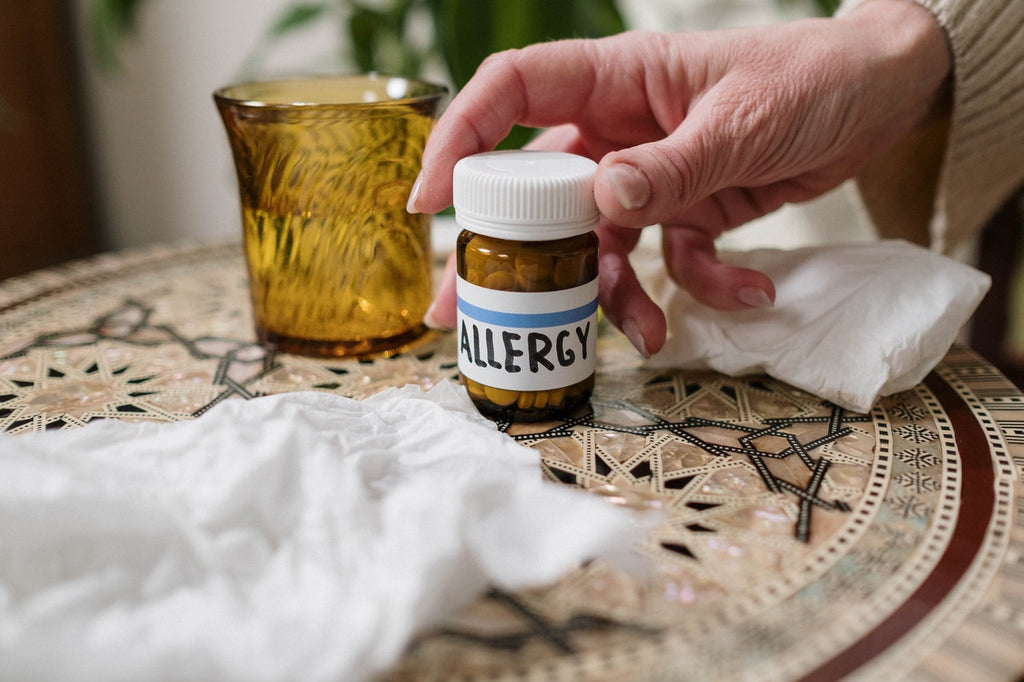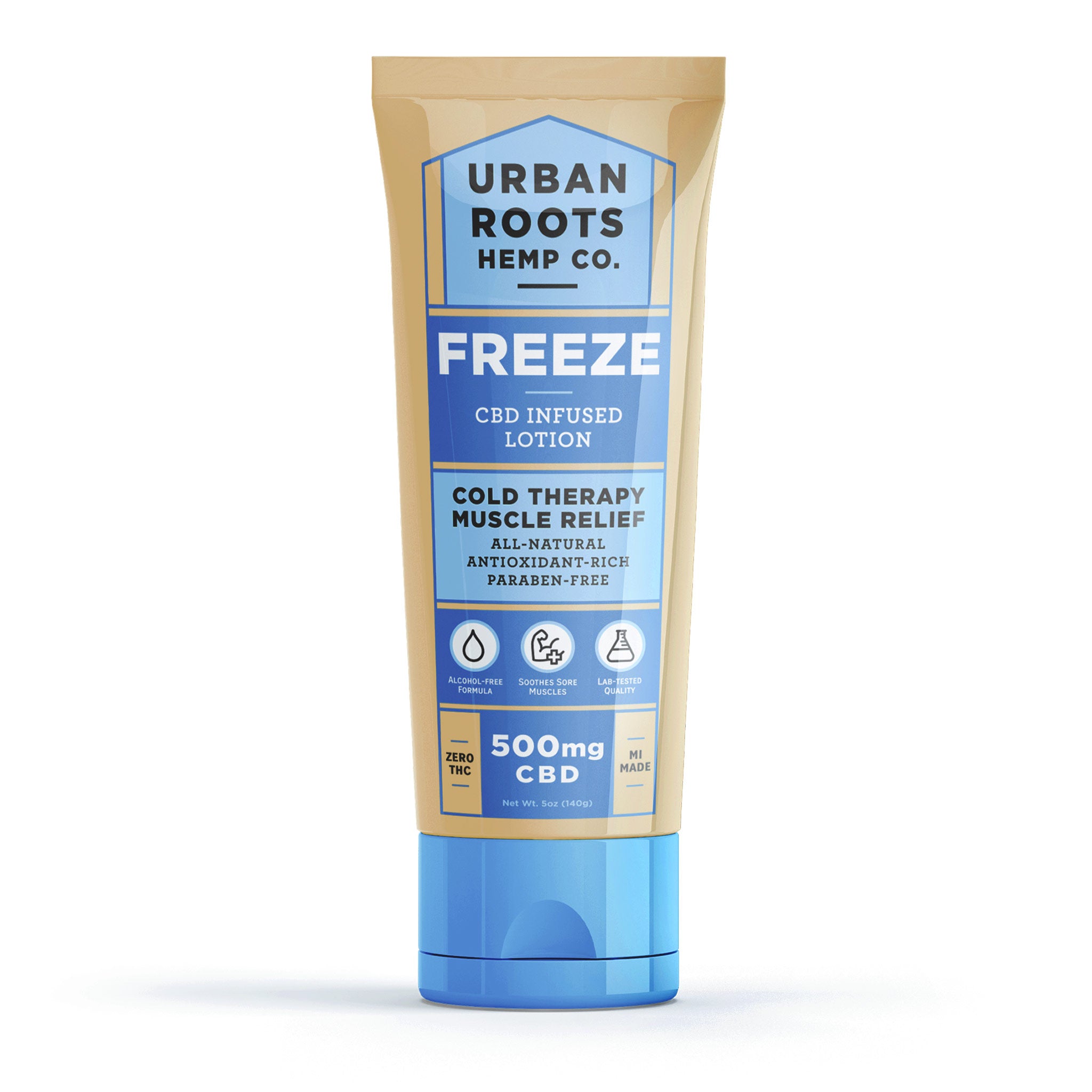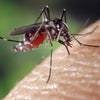Can CBD Help with Spring Allergies? What the Research Says

Yes, CBD may help with spring allergy symptoms for some people. Research suggests that CBD interacts with the immune system and may reduce inflammation and histamine-related responses that cause common allergy symptoms like itching, swelling, runny nose, and redness. While CBD is not a cure for allergies and results vary from person to person, early studies indicate it may support a more balanced immune response during allergy season.
Spring and summer allergies affect millions of people every year, often striking just as warm weather invites us outdoors. Pollen, mold, and dust mites trigger immune reactions that lead to uncomfortable and sometimes debilitating symptoms. This has led many people to ask whether natural alternatives like CBD could help manage seasonal allergies without the side effects commonly associated with traditional antihistamines.
What Are Allergies?
According to an article from the Mayo Clinic, an allergy is defined as a reaction by your immune system to a foreign substance. Allergies cause your immune system to fight against particular substances, called allergens, acting as though they are harmful to your body even if they aren’t. They go on to say:
“An allergy starts when your immune system mistakes a normally harmless substance for a dangerous invader. The immune system then produces antibodies that remain on the alert for that particular allergen. When you're exposed to the allergen again, these antibodies can release a number of immune system chemicals, such as histamine, that cause allergy symptoms.”
Common allergies include the following:
- Airborne allergens, such as pollen, animal dander, dust mites and mold
- Certain foods, particularly peanuts, tree nuts, wheat, soy, fish, shellfish, eggs and milk
- Insect stings, such as from a bee or wasp
- Medications, particularly penicillin or penicillin-based antibiotics
- Latex or other substances you touch, which can cause allergic skin reactions
For the purposes of this article, we want to focus spring allergies and how CBD may be able to help them. So let’s get back on track.
What Causes Spring Allergies?
When it comes to spring allergies, the main culprit of your runny nose, itchy eyes, redness, and swelling are histamines. The same as with other allergens, if you’re allergic to pollen then your immune system treats it as a harmful invader when you come into contact with it. It triggers the release of antibodies which then triggers the release of histamines.
Other common triggers in the spring and summer include mold growth spurred on by rain and dust mites being stirred up by spring cleaning.
Histamines are chemicals that help your body get rid of substances it doesn’t want inside you. If you think about, then it makes sense. Runny noses, itchiness, coughing, sneezing, etc. are all meant to expel foreign invaders. All of these symptoms are part of your body’s defense system. Problems only arise when that defense system is triggered for no reason, or when it reacts too strongly and becomes a nuisance.
When it comes to spring allergies, pollen enters your nose and triggers an immune response. Histamines are released and cause an increase in mucus to be produced. That mucus then leads to a runny nose, sneezing, coughing, etc. When the pollen gets on your skin and around your eyes, histamines cause itching to try to force you to remove the pollen.
How People Usually Treat Spring Allergies
Typical allergy medicines like diphenhydramine and chlorpheniramine are antihistamines. Like their name implies, antihistamines block the release of histamines triggered by your immune system. Although histamine is necessary in many situations, when it is not necessary or when your body releases too much of it, then these types of drugs can bring it back under control.
The problem is that many antihistamine drugs have some pretty serious side effects, both in the long and short term. Common side effects of antihistamine medications often include:
- Drowsiness
- Headaches
- Stomach pain
- Dry mouth, nose, and throat
- Nervousness
- Loss of appetite
- Nausea
They can also be dangerous for people who suffer from health conditions like glaucoma, high blood pressure, heart disease, seizures, or thyroid problems. In some cases, antihistamines can worsen these conditions.
So, the question is, could there be a more effective treatment for blocking histamine and alleviating symptoms brought on by spring allergies?
Well, CBD may be able to help.
CBD and Your Immune System
According to several studies, various immune system specialty cells have both types of endocannabinoid receptors, CB1 and CB2. This means that both cannabinoids (like CBD and THC) as well as endocannabinoids (cannabinoids produced endogenously within the body, hence “endo”) are able to bind to immune system cells. Furthermore, many researchers believe that endocannabinoids play a key role in immune function and in immune system homeostasis or balance.
The most common way CBD can do this is by reining in our body’s immune response. Although it is not 100% clear how it works, CBD is thought to temper our immune system through the following.
- Anti-inflammatory properties which reduce the immune system’s inflammatory response.
- CBD may suppress the function and secretion of cytokines, large groups of proteins that signal molecules that regulate your body’s immunity, inflammation, and white blood cell production.
- CBD may also restrict the production of chemokine, a group of cytokines that lead immune cells to an infection site so that white blood cells can attack and destroy dangerous microbes.
- Some research has also indicated the CBD may inhibit the production and suppression of immune system T-cells.
CBD as an Antihistamine
Several past studies have supported the use of CBD as an antihistamine:
- A study from 2005 demonstrated that CBD possesses immune-modulating effects throughout cells in the respiratory system and acts as an antihistamine. The same study highlighted the anti-inflammatory properties of cannabis.
- A 2009 study found reduction of allergic symptoms in mice when administered Pinene, an essential oil or ‘terpene’ found commonly in cannabis. Several other studies have noted terpenes bronchodilation, inflammation regulating, and muscle relaxing effects, all of which may contribute to seasonal allergy relief.
Dr. Sue Sisley, a cannabis researcher, found that the Cannabis sativa plant may inhibit the inflammatory pathway.
“And that certainly does relate to allergies because if you can cut the inflammatory pathway, then it could certainly help the untreated allergies, all the classic symptoms, the itchy, runny nose, itchiness, hives, all those kinds of things,” Dr. Sisley states.
How May CBD Help Spring Allergies?
As we’ve discussed before in many of our articles, the way CBD may help any health condition is through our body’s endocannabinoid system (ECS). This system is a network of receptors, enzymes, and biochemical pathways involved in manufacturing and using the body’s own form of cannabinoids: endocannabinoids (“endo” meaning "originating within the body").
Basically, the way it works is that cannabinoids like CBD trigger receptors found throughout the endocannabinoid system. These triggers then initiate changes throughout our nervous systems and other bodily systems. Scientists have now concluded that cannabinoids can modulate many physiological systems in the human brain and body.
There are two types of these receptors:
- CB1 receptors are essential for a healthy functioning brain and are one of the most common receptors in the entire nervous system.
- CB2 receptors are most often found in the peripheral nervous system. Specifically, on the cells of our immune system. This allows them to help moderate and respond to inflammation and our immune response to pathogens.
Those receptors are found throughout our immune system, which is how researchers believe CBD can have an effect on immune responses like allergies.
Interested in trying an alternative to traditional antihistamine medications to treat your spring allergies? Try CBD to see if it helps alleviate your symptoms. Just remember that it takes time to build up in your system, so don’t expect instant results.
Frequently Asked Questions about CBD and Allergies
Does CBD help with allergies?
CBD may help reduce allergy symptoms by supporting the immune system and decreasing inflammation. Studies suggest CBD can influence immune cell activity and histamine responses, which are key drivers of allergy symptoms.
Can CBD act as an antihistamine?
Some research indicates that CBD may have antihistamine-like properties. It does not block histamines in the same way traditional allergy medications do, but it may reduce the immune response that triggers histamine release.
What allergy symptoms might CBD help with?
CBD may help alleviate symptoms such as itchy eyes, skin irritation, redness, swelling, runny nose, and inflammation caused by seasonal allergies. Results vary depending on the individual and consistency of use.
How long does it take for CBD to work for allergies?
CBD is not a fast acting allergy medication. It often needs to build up in your system over time, meaning consistent daily use may be necessary before noticeable benefits appear.
Can I take CBD daily during allergy season?
Many people use CBD daily during allergy season to support immune balance. Start with a low dose and adjust gradually while monitoring how your body responds.









